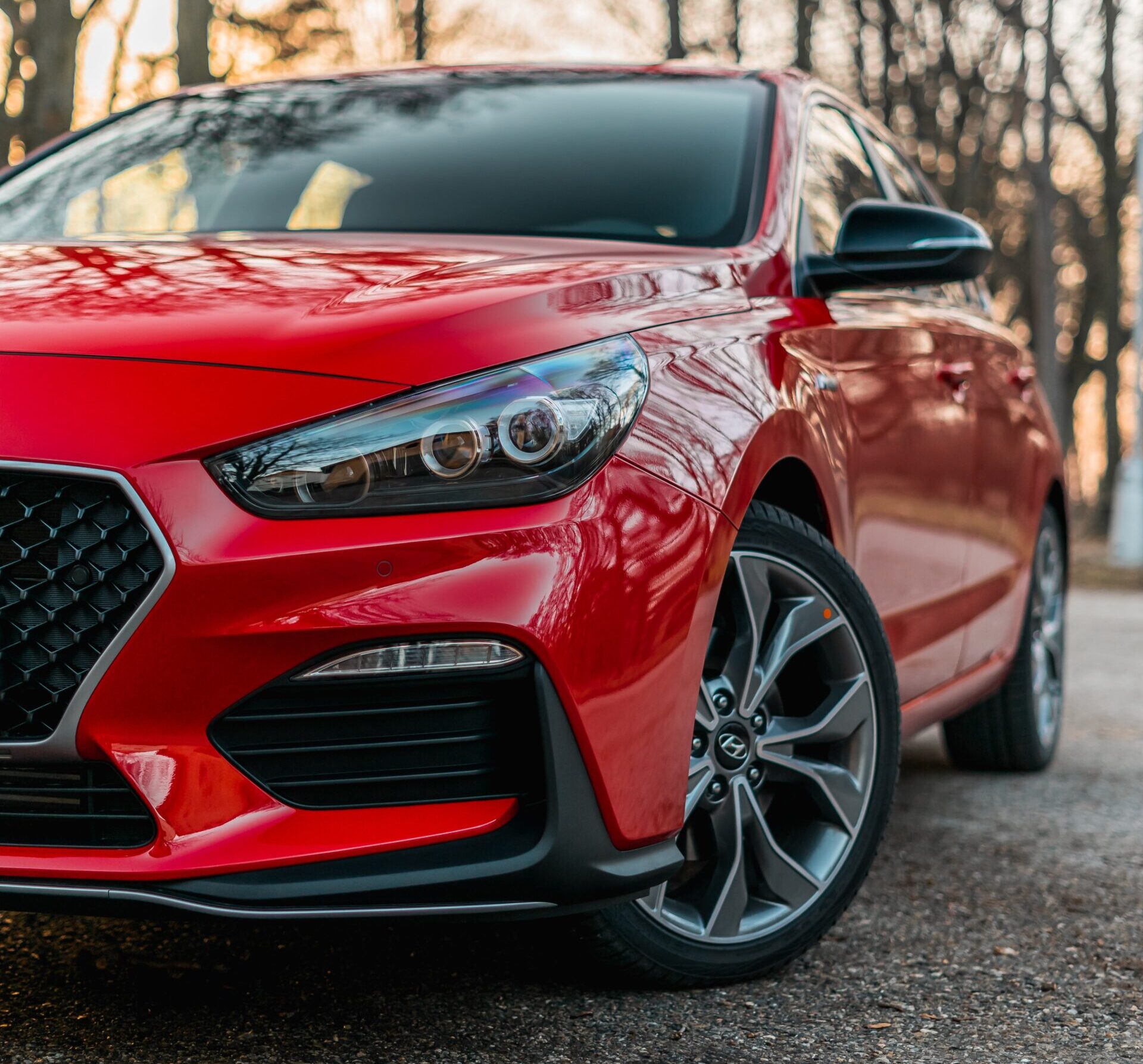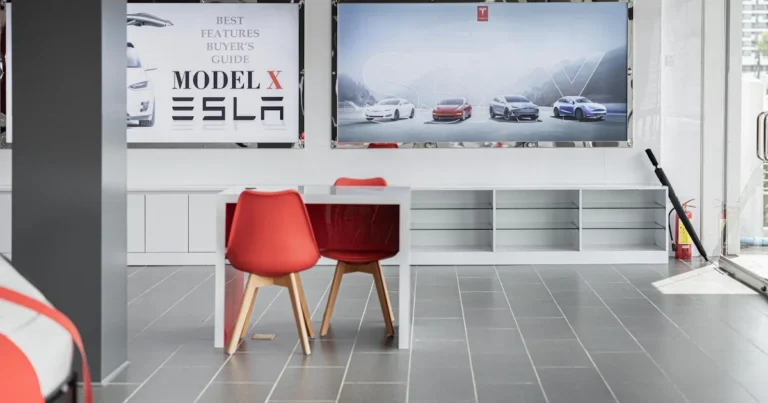Support our educational content for free when you purchase through links on our site. Learn more
10 Powerful Pros of Buying a Car You Can’t Ignore in 2025 🚗
Imagine cruising down the highway in a car that’s truly yours — no mileage limits, no lease-end fees, and every inch customized to your style. Sounds like a dream, right? Well, that’s exactly what buying a car offers, and it’s why millions still choose ownership over leasing every year. But what makes buying such a compelling choice in 2025, especially with so many tempting lease deals out there?
In this deep dive, we’ll unpack 10 unbeatable advantages of buying a car, from financial freedom and equity building to the joy of personalization and long-term savings. Plus, we’ll reveal insider tips on how to snag the best deals and avoid common pitfalls. Whether you’re a first-time buyer or a seasoned driver wondering if ownership is worth it, stick around — the road ahead is full of surprises!
Key Takeaways
- Owning your car means total freedom: No mileage restrictions or lease penalties.
- Long-term savings add up: After your loan is paid off, you drive payment-free.
- Build equity: Each payment increases your stake in a valuable asset.
- Customization is king: Modify your ride however you want without restrictions.
- Buying used is eco-friendly: Certified pre-owned cars offer value and sustainability.
- Flexibility to sell or trade anytime: No lease contracts to tie you down.
- Maintenance control: Choose when and where to service your vehicle.
Ready to explore your options? Check out these top brands to start your buying journey:
- 👉 Shop Honda CR-V: TrueCar | Edmunds | Honda Official Website
- 👉 Shop Toyota RAV4: TrueCar | Edmunds | Toyota Official Website
- 👉 Shop Ford F-150: TrueCar | Edmunds | Ford Official Website
Table of Contents
- ⚡️ Quick Tips and Facts About Buying a Car
- 🚗 The Evolution of Car Ownership: Why Buying Still Rocks
- 1️⃣ Top 10 Pros of Buying a Car: What Makes It Worth It
- 💰 Financial Freedom: How Buying a Car Can Save You Money
- 🔧 Customization and Control: Make Your Ride Truly Yours
- 📈 Building Equity: Why Your Car Can Be an Asset (Sort Of)
- 🛠️ Maintenance and Longevity: Owning vs. Leasing Realities
- 🔄 Flexibility and Freedom: No Strings Attached
- 🌍 Environmental Impact: Buying Used Cars and Sustainability
- 🛡️ Insurance and Liability: What You Need to Know When Buying
- 📊 Comparing Leasing vs. Buying: Which One Wins?
- 💡 Insider Tips: How to Get the Best Deal When Buying a Car
- 📅 Long-Term Ownership: Planning for the Road Ahead
- 🛒 New vs. Used Cars: Pros of Buying Each
- ⚖️ Pros and Cons Summary: Is Buying Right for You?
- 📚 Conclusion: Wrapping Up the Pros of Buying a Car
- 🔗 Recommended Links for Car Buyers
- ❓ Frequently Asked Questions About Buying a Car
- 📖 Reference Links and Resources
⚡️ Quick Tips and Facts About Buying a Car
Buying a car is like planting a tree: it takes time, care, and patience, but the rewards can be long-lasting and deeply satisfying. At Car Leases™, we’ve seen countless drivers weigh the pros and cons, and here’s the quick lowdown before we dive deeper:
- Ownership means freedom: No mileage limits, no lease-end fees, and you can customize your ride however you want.
- Long-term savings: While monthly payments might be higher than leasing, owning a car outright usually costs less over time.
- Equity building: Every payment brings you closer to full ownership — unlike leasing, where you’re essentially renting.
- Depreciation is real: Cars lose value fast, especially in the first few years — but buying used can soften the blow.
- Maintenance responsibility: After the warranty expires, you’re on the hook for repairs, but you also decide when and how to maintain your vehicle.
- Flexibility: You can sell, trade, or keep your car as long as you want — no contract lock-ins.
For more on how buying stacks up against leasing, check out our Car Lease Basics and Auto Financing Options guides.
🚗 The Evolution of Car Ownership: Why Buying Still Rocks
Owning a car has been a symbol of freedom and independence since the Model T rolled off Henry Ford’s assembly line. Fast forward to today, and while leasing has surged in popularity, buying remains a cornerstone of personal mobility.
Why Buying Endures
- Full control: You decide how long to keep your car, how to maintain it, and how to personalize it.
- No strings attached: Unlike leasing, there are no mileage caps or penalties for wear and tear.
- Financial asset: While cars depreciate, owning outright means you can trade or sell anytime, recouping some value.
The Modern Twist
Today’s buyers are more informed, using tools like lease vs. buy calculators and online reviews to make savvy decisions. Plus, with the rise of certified pre-owned (CPO) programs from brands like Toyota and Honda, buying a used car with warranty coverage is easier and less risky than ever.
Fun fact: According to Experian’s latest data, the average new car loan term is now 72 months — a sign people are committed to ownership longer than before! (Source)
1️⃣ Top 10 Pros of Buying a Car: What Makes It Worth It
Let’s get down to brass tacks. Here are the top 10 reasons buying a car beats leasing for many drivers:
| # | Pro | Why It Matters |
|---|---|---|
| 1 | You own it outright | After loan payoff, it’s yours to keep, sell, or trade anytime. |
| 2 | No mileage limits | Drive coast to coast without worrying about penalties. |
| 3 | Customization freedom | Paint it, mod it, or add tech gadgets — no lease restrictions. |
| 4 | Build equity | Each payment builds value, unlike lease payments which are pure expense. |
| 5 | Long-term cost savings | Owning longer reduces monthly costs over time. |
| 6 | Flexibility to sell or trade | Need a change? Sell or trade your car without lease-end hassles. |
| 7 | No lease-end fees | Avoid wear-and-tear charges or excess mileage penalties. |
| 8 | Better insurance options | You can shop for insurance that fits your needs, sometimes cheaper than lease-mandated plans. |
| 9 | Drive as much as you want | Perfect for road warriors or families with long commutes. |
| 10 | More loan options | Wide variety of financing choices, including competitive rates from banks and credit unions. |
Pro tip: If you’re eyeing a brand like the Honda CR-V, buying can be a smart move — it holds value well and offers excellent reliability.
💰 Financial Freedom: How Buying a Car Can Save You Money
Owning a car outright can be a financial game-changer — but only if you play your cards right.
How Buying Saves You Money
- No recurring lease payments: Once your loan is paid off, you drive payment-free!
- Trade-in equity: When you sell or trade, you can apply the value toward your next vehicle.
- Avoid lease penalties: No fees for mileage overages or wear and tear.
- Lower insurance premiums: Some insurers charge less for owned vehicles versus leased ones.
The Cost Breakdown
| Expense Type | Buying a Car | Leasing a Car |
|---|---|---|
| Monthly Payments | Higher initially, then zero after loan payoff | Lower, but ongoing as long as you lease |
| Down Payment | Typically 10-20% of purchase price | Often lower or zero |
| Maintenance Costs | Owner pays after warranty expires | Usually covered during lease term |
| Mileage Fees | None | Fees if you exceed limits |
| Equity | Builds over time | None |
According to Bankrate, buying tends to be cheaper in the long run, especially if you keep your car for 5+ years. (Source)
🔧 Customization and Control: Make Your Ride Truly Yours
One of the biggest perks of buying? You call the shots.
What You Can Do When You Own Your Car
- Modify your ride: Add aftermarket wheels, upgrade the stereo, or install performance parts.
- Choose your maintenance schedule: No forced dealer visits or restrictions.
- Personalize interior and exterior: Wraps, decals, or custom upholstery — the sky’s the limit.
Leasing contracts typically forbid modifications, and you risk losing your security deposit if you make unauthorized changes.
Our story: One of our team members bought a Jeep Wrangler and decked it out with off-road tires, a lift kit, and custom bumpers. Leasing that beast? No chance!
📈 Building Equity: Why Your Car Can Be an Asset (Sort Of)
Equity in a car isn’t like equity in a house, but it’s still valuable.
How Equity Works in Car Buying
- Loan payments reduce principal: Each payment lowers what you owe, increasing your stake.
- Trade-in value: When you’re ready for a new ride, your current car’s value can offset the cost.
- Selling outright: You can sell your car anytime and pocket the cash.
Beware Depreciation
New cars lose about 20% of their value in the first year and up to 50% in five years. Buying used can reduce this hit. (Source)
🛠️ Maintenance and Longevity: Owning vs. Leasing Realities
When you own, maintenance is your responsibility — but that’s not necessarily a bad thing.
Maintenance Pros and Cons of Buying
-
Pros:
- You control when and where to service your car.
- Can choose independent mechanics to save money.
- Long-term care can extend vehicle life beyond lease terms.
-
Cons:
- Repairs after warranty can be costly.
- Unexpected breakdowns are your problem.
Leasing Maintenance
Leases often include warranty-covered maintenance, but you must keep the car in “good condition” or face fees.
🔄 Flexibility and Freedom: No Strings Attached
Owning a car means freedom to adapt.
- Drive anywhere, anytime: No mileage restrictions or penalties.
- Keep it as long as you want: Drive it for 10 years or more if you like.
- Sell or trade anytime: No lease-end negotiations or early termination fees.
If your lifestyle changes — new job, family needs, or moving — you’re not locked into a lease contract.
🌍 Environmental Impact: Buying Used Cars and Sustainability
Buying a used car is a surprisingly green choice.
Why Used Cars Are Eco-Friendly
- Less manufacturing waste: Extends the life of existing vehicles.
- Lower carbon footprint: Avoids emissions from producing a new car.
- Certified pre-owned (CPO) programs: Offer reliable, inspected vehicles with warranties.
Brands like Toyota and Ford have strong CPO programs that balance sustainability with peace of mind.
🛡️ Insurance and Liability: What You Need to Know When Buying
Insurance for owned cars can differ from leased vehicles.
Key Insurance Considerations When Buying
- Coverage flexibility: You can choose liability, collision, and comprehensive coverage levels.
- Potentially lower premiums: Owned cars sometimes qualify for discounts.
- No lease-mandated insurance: Leasing companies often require higher coverage limits.
Check with insurers like Geico or State Farm for quotes tailored to ownership.
📊 Comparing Leasing vs. Buying: Which One Wins?
Here’s a quick side-by-side comparison to help you decide:
| Factor | Buying a Car ✅ | Leasing a Car ❌ |
|---|---|---|
| Ownership | You own the car outright | You’re essentially renting |
| Monthly Payments | Higher initially, then none | Lower but ongoing |
| Mileage Limits | None | Strict limits with penalties |
| Customization | Unlimited | Usually prohibited |
| Maintenance | Your responsibility after warranty | Often covered during lease term |
| Flexibility | Sell or trade anytime | Early termination fees apply |
| Long-term Cost | Usually cheaper if kept long | More expensive over many years |
As Investopedia puts it, “Buying a car gives you ownership and control,” which is priceless for many drivers. (Source)
💡 Insider Tips: How to Get the Best Deal When Buying a Car
Ready to buy? Here’s how to get the most bang for your buck:
Step 1: Research and Compare
- Use sites like Edmunds, TrueCar, and Kelley Blue Book to check fair market prices.
- Compare new vs. used models and trims.
Step 2: Get Pre-Approved Financing
- Check rates from banks, credit unions, and online lenders.
- Know your credit score — it impacts your loan terms. See our Credit Score and Car Leasing tips.
Step 3: Negotiate Like a Pro
- Don’t be afraid to walk away — dealers want your business.
- Ask about incentives, rebates, and trade-in values.
Step 4: Inspect and Test Drive
- Check vehicle history reports for used cars.
- Test drive in various conditions.
Step 5: Review the Contract Carefully
- Look for hidden fees or add-ons.
- Confirm warranty coverage and return policies.
📅 Long-Term Ownership: Planning for the Road Ahead
Owning a car is a marathon, not a sprint.
Tips for Long-Term Success
- Regular maintenance: Follow the manufacturer’s schedule to avoid costly repairs.
- Protect your investment: Use quality parts and keep it clean.
- Plan for resale: Keep records and maintain good condition to maximize trade-in value.
🛒 New vs. Used Cars: Pros of Buying Each
Buying New Cars
- Pros: Latest tech, full warranty, no previous wear.
- Cons: Higher depreciation, higher upfront cost.
Buying Used Cars
- Pros: Lower price, slower depreciation, CPO warranties available.
- Cons: Potential unknown history, shorter warranty.
Both options have their place — it depends on your budget and priorities.
⚖️ Pros and Cons Summary: Is Buying Right for You?
| Pros of Buying | Cons of Buying |
|---|---|
| Full ownership and control | Higher monthly payments upfront |
| No mileage or modification limits | Responsible for maintenance costs |
| Builds equity over time | Depreciation reduces value |
| Flexibility to sell or keep | Larger down payment often needed |
| Potential long-term savings | Risk of unexpected repairs |
If you want freedom, flexibility, and long-term value, buying is often the smarter choice.
📚 Conclusion: Wrapping Up the Pros of Buying a Car

So, what’s the final verdict on buying a car? At Car Leases™, we’ve walked the road with countless drivers, and here’s the bottom line: buying a car offers unmatched freedom, flexibility, and long-term financial benefits — especially if you plan to keep your vehicle for several years.
Owning your car means no mileage limits, no lease-end penalties, and the ability to customize your ride exactly how you want it. While the upfront costs and monthly payments might be higher than leasing, the equity you build and the freedom you gain often outweigh those initial expenses. Plus, buying used or certified pre-owned vehicles from trusted brands like Honda, Toyota, or Ford can soften depreciation hits and offer great value.
Remember our Jeep Wrangler story? That’s the kind of ownership joy you just can’t lease. And if you’re a long-haul driver or someone who loves to tinker, buying is the clear winner.
In short: If you crave control, want to save money over time, and aren’t afraid to handle maintenance, buying is your best bet. Leasing might tempt with lower payments, but owning your car means owning your freedom.
🔗 Recommended Links for Car Buyers
Ready to start your buying journey? Check out these platforms to explore new and used cars from top brands:
- Honda CR-V: TrueCar | Edmunds | Honda Official Website
- Toyota RAV4: TrueCar | Edmunds | Toyota Official Website
- Ford F-150: TrueCar | Edmunds | Ford Official Website
Explore financing options and credit tips here:
❓ Frequently Asked Questions About Buying a Car
What are the benefits of owning a car compared to leasing one?
Owning a car gives you full control and flexibility. You can drive unlimited miles, customize your vehicle, and keep it as long as you want without worrying about lease-end fees or penalties. Over time, ownership builds equity, meaning your payments contribute to an asset you can sell or trade. Leasing, while offering lower monthly payments, restricts mileage and modifications, and you never own the vehicle.
How does buying a car affect my monthly budget and financial planning?
Buying a car generally means higher monthly payments upfront compared to leasing, and often requires a larger down payment. However, once your loan is paid off, you no longer have monthly car payments, which can free up your budget significantly. Long-term, owning a car tends to be more cost-effective, especially if you keep it beyond the loan term. Planning for maintenance and insurance costs is essential, but you gain the flexibility to shop for the best deals.
Are there any long-term advantages to purchasing a vehicle over leasing or renting?
Absolutely. The biggest long-term advantage is equity building — once your loan is paid off, you own the car outright. This means no more monthly payments, and you can sell or trade the car anytime. You also avoid mileage restrictions and lease-end fees, and you can keep the car as long as you want, potentially driving it for many years to maximize value. This is especially beneficial for drivers who rack up high mileage or want to customize their vehicles.
What are the key factors to consider when deciding between buying and leasing a car for personal use?
- Driving habits: Do you drive a lot? Buying avoids mileage penalties.
- Financial situation: Can you afford higher monthly payments and a down payment?
- Vehicle preferences: Do you want to customize or keep your car long-term?
- Flexibility needs: Leasing offers easier upgrades every few years; buying offers long-term stability.
- Maintenance willingness: Owning means handling repairs after warranty; leasing usually covers this.
Assess these factors alongside your lifestyle and goals to make the best choice.
How does depreciation impact the decision to buy a new versus used car?
New cars depreciate rapidly — often losing 20% of their value in the first year. Buying used or certified pre-owned cars can reduce the depreciation hit, offering better value retention. If you plan to keep your car for many years, depreciation matters less, but if you want to resell or trade frequently, buying used might be smarter.
Can I negotiate better deals when buying compared to leasing?
Yes! When buying, you have more room to negotiate price, trade-in value, and financing terms. Leasing deals are often more rigid due to manufacturer programs and residual value calculations. Doing your homework, comparing prices on sites like Edmunds and TrueCar, and getting pre-approved financing can give you leverage.
📖 Reference Links and Resources
- Leasing vs. Buying a New Car – Consumer Reports
- Bankrate: Leasing vs. Buying a Car
- Investopedia: When Leasing a Car is Better Than Buying
- Experian: Average Auto Loan Terms
- Edmunds: Car Depreciation Explained
- Honda Official Website
- Toyota Official Website
- Ford Official Website
For more detailed insights and tips, explore our Car Lease Basics and Auto Financing Options categories.





